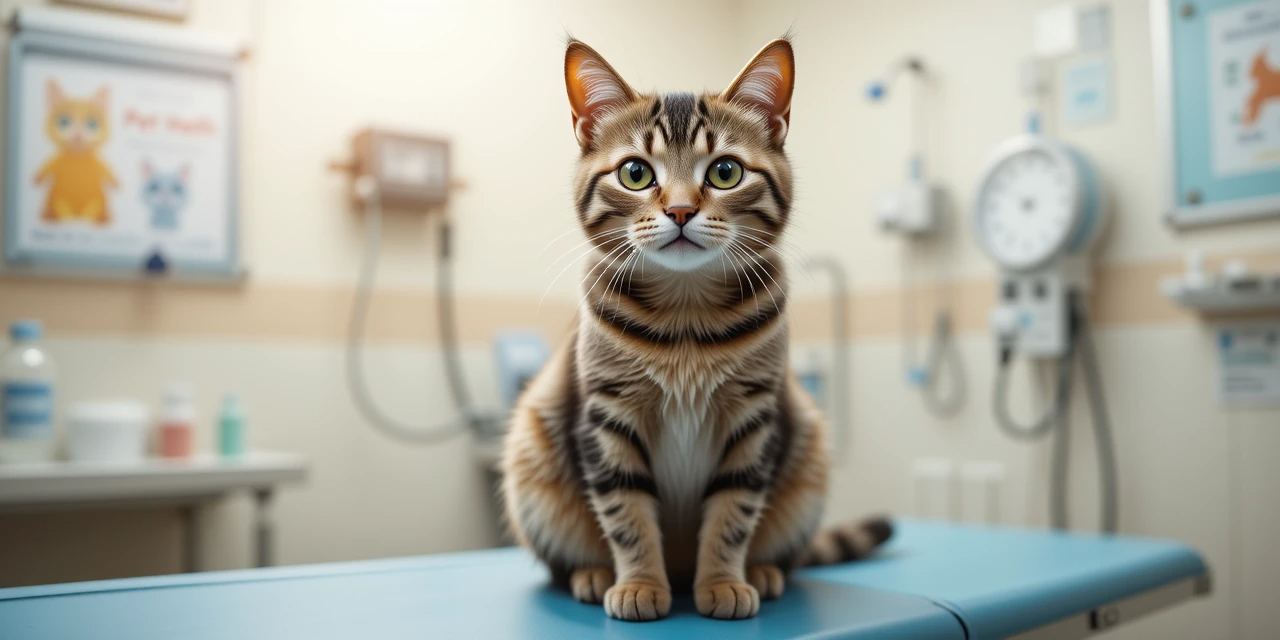Can Cats Get Parvo? What Every Cat Owner Needs to Know About FPV
Many people believe parvovirus is a disease that only affects dogs. But did you know that cats can contract a form of parvo too?
Feline panleukopenia virus (FPV), commonly known as feline parvo or feline distemper, is a highly contagious and potentially fatal disease in cats—especially kittens. This article will walk you through everything you need to know to protect your furry friend.
Understanding Feline Parvovirus (FPV)
Feline parvovirus, or FPV, is not the same virus as canine parvovirus, but it belongs to the same virus family and causes similarly severe symptoms in cats.
FPV attacks rapidly dividing cells in a cat’s body, particularly those in the bone marrow, intestines, and lymph nodes. This weakens the immune system and leaves the cat vulnerable to secondary infections. Left untreated, FPV can be deadly, especially for kittens and unvaccinated cats.
Transmission Pathways
FPV spreads primarily through contact with infected bodily fluids such as urine, stool, or nasal secretions. However, it can also spread indirectly through contaminated food bowls, bedding, litter boxes, and even clothing or hands.
One of the most dangerous aspects of FPV is its environmental resilience. The virus can survive on surfaces for up to a year and is resistant to most disinfectants. Fleas and even an infected mother can pass the virus to kittens.
Identifying Symptoms
Early detection can make all the difference. Keep an eye out for these common symptoms:
- High fever
- Lethargy or sudden weakness
- Loss of appetite
- Vomiting
- Bloody or watery diarrhea
- Dehydration
- Pale gums
In kittens, the disease can progress rapidly and become fatal within days. If you notice any combination of these symptoms, seek veterinary help immediately.
Diagnosis and Treatment
Diagnosis:
Vets typically diagnose FPV through a combination of physical examination, complete blood counts (CBC), and fecal testing. These tests help rule out other illnesses and confirm FPV.
Treatment:
There is no specific cure for FPV, but supportive care can dramatically improve survival chances. This may include:
- Intravenous fluids to combat dehydration
- Medications to control vomiting and diarrhea
- Antibiotics to prevent secondary bacterial infections
- Nutritional support
Prompt veterinary treatment significantly increases the likelihood of recovery. Time is critical.
Prevention Strategies
Vaccination
Vaccination is the most effective way to prevent FPV. Kittens should begin their vaccination series at 6 to 8 weeks of age, with boosters every 3–4 weeks until 16 weeks old. Adult cats need regular boosters as advised by your veterinarian.
Vaccinating your cat not only protects them but also helps stop the spread of this devastating disease.
Hygiene Practices
Good hygiene is another line of defense:
- Regularly clean litter boxes, food and water bowls, and bedding.
- Use vet-approved disinfectants.
- Keep unvaccinated or stray cats away from your pets.
If you’ve had a cat with FPV in your home, it’s essential to thoroughly disinfect all surfaces and wait several months before introducing a new kitten.
Frequently Asked Questions
Can humans transmit FPV to cats?
While humans can’t be infected, they can carry the virus on hands, shoes, or clothes and unknowingly pass it to cats.
Is FPV the same as feline distemper?
Yes. FPV is often referred to as feline distemper, though it’s unrelated to the distemper virus in dogs.
How long does the virus survive outside a host?
FPV can survive in the environment for up to a year, making it one of the hardiest viruses in the feline world.
Can indoor cats contract FPV?
Yes. Even indoor cats are at risk if the virus is brought into the home via contaminated items, clothing, or pests.
Conclusion
Feline parvovirus (FPV) is a deadly but preventable disease. With proper vaccination, good hygiene, and timely veterinary care, you can significantly reduce your cat’s risk.
If your cat is overdue for vaccines or showing concerning symptoms, don’t wait. Talk to your vet today—because your cat’s life may depend on it.


